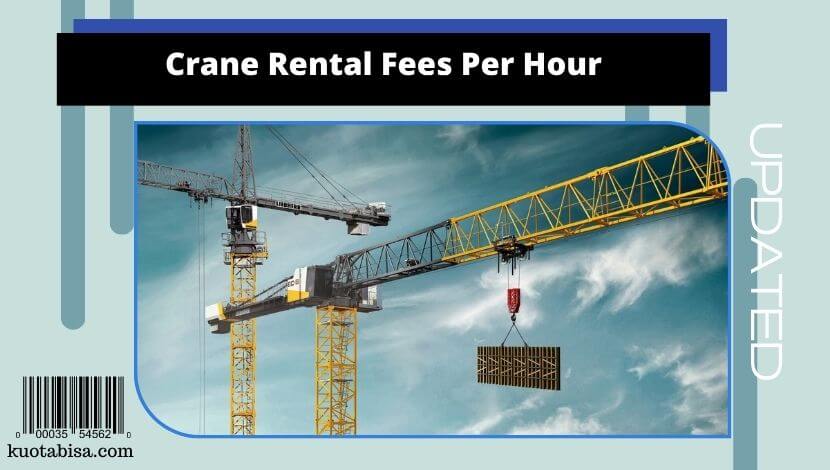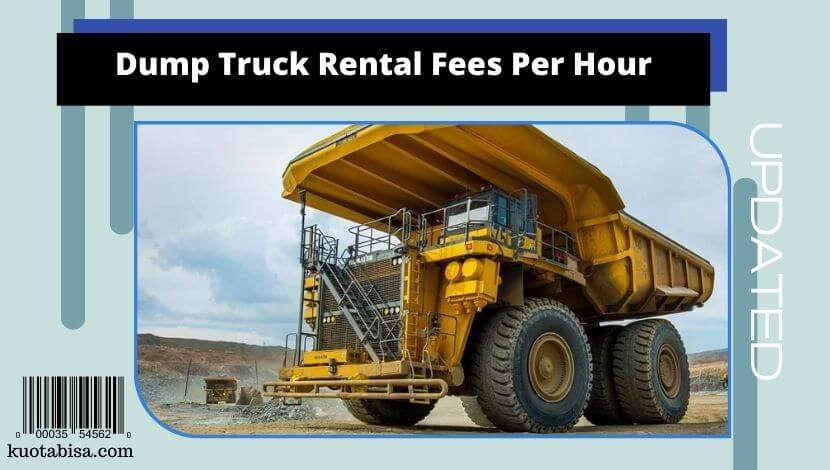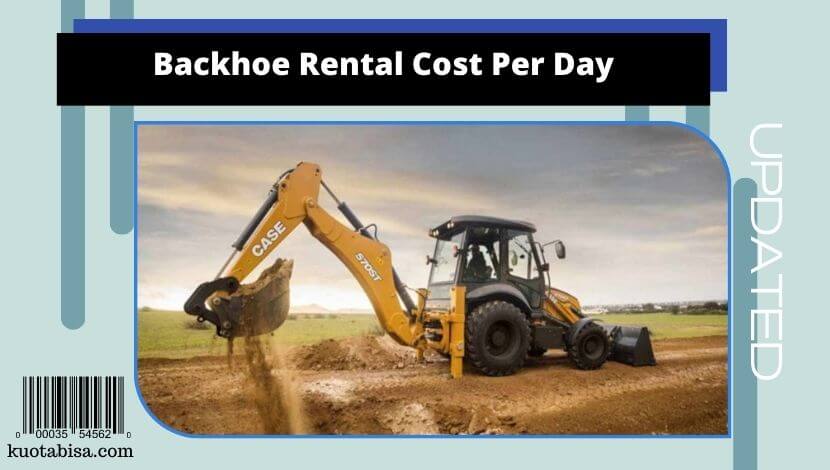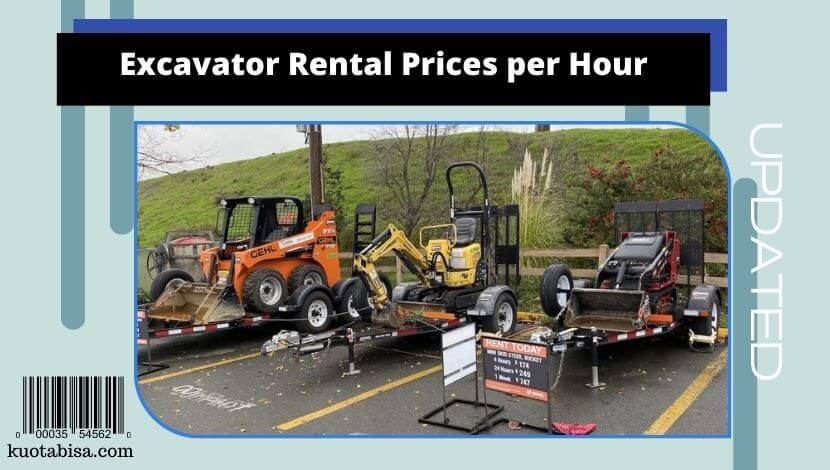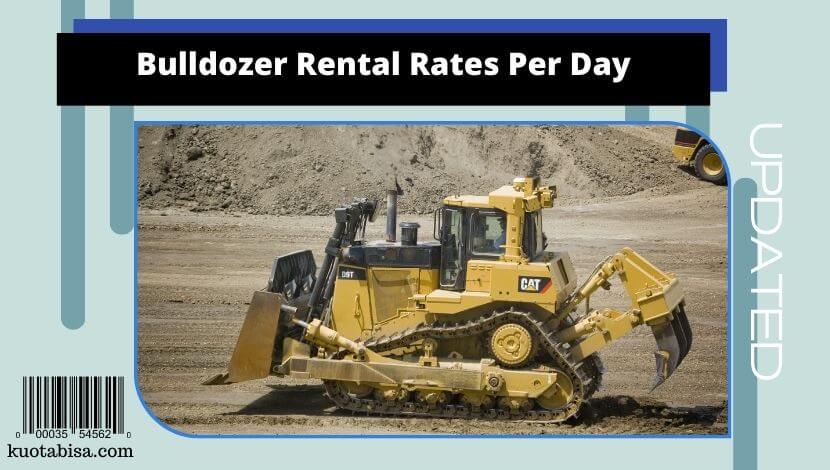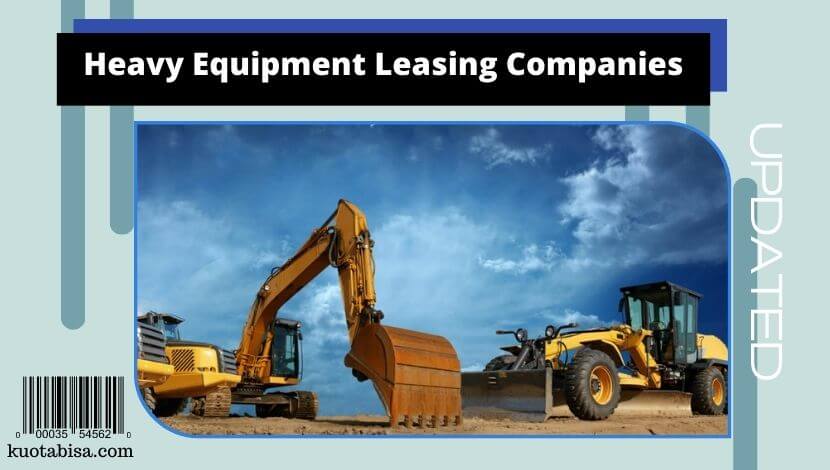Construction Equipment Rental Rates – Construction equipment rental rates can vary greatly depending on the type of equipment, the duration of the rental, and the location of the rental company.
Generally, rental rates for construction equipment are calculated on a daily, weekly, or monthly basis.
Some of the most commonly rented construction equipment includes excavators, bulldozers, loaders, backhoes, cranes, and aerial work platforms.
The rental rates for these machines can range from a few hundred dollars per day to several thousand dollars per month.
If you want to know more about Construction Equipment Rental Rates, read this article below!
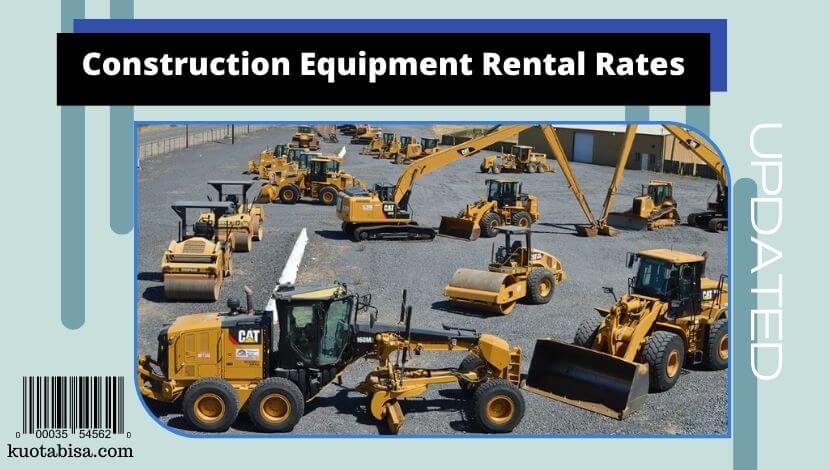
Construction Equipment Rental Rates
How much does heavy equipment rental cost? When weighing the options of buying or renting construction equipment, it is important to have an overview and understand the total cost of renting construction equipment.
This guide to equipment rental costs describes typical rental prices for various types of equipment and the factors that affect equipment rental costs.
Cost by Construction Equipment Rental Type
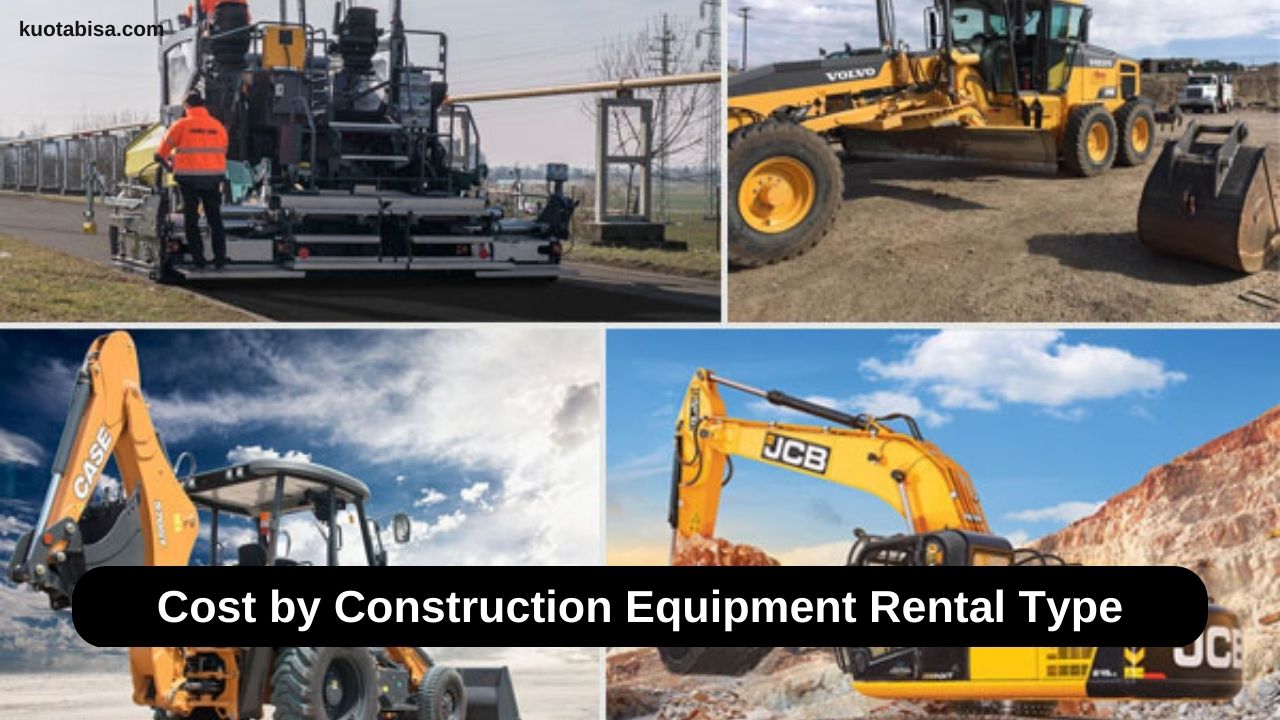
Heavy equipment rental prices vary greatly depending on the type of equipment.
Whether you rent compact construction equipment such as skid steer loaders, compact track loaders, multi-terrain loaders, or choose full-size equipment such as excavators, backhoe loaders, wheel loaders, and the price depends on the size of your building.
Rental rates are primarily based on hourly rates, starting with a minimum number of hours. However, contractors often find it more convenient to rent equipment by the day.
Below are typical daily rental rates for different types of equipment:
Excavators
Excavators are one of the most popular rental equipment because they are often only needed for short periods of time, such as digging the foundations of a house or an in-ground pool.
Excavators vary widely in size, from small hydraulic excavators weighing 1 to 10 tons to large excavators with operating weights of 190,000 pounds.
A typical full-size 15- to 20-ton excavator costs a business owner between $200,000 and $500,000.
Compare that to just $450 to $3,500 for a day’s rental.
Forklifts
Forklift rentals help warehouse managers and contractors reduce downtime during scheduled maintenance or during unforeseen breakdowns.
Forklift rentals help managers stay productive in the short term and at low cost.
Buying a new forklift can cost anywhere from $10,000 to over $25,000.
Forklift rentals for a limited period will cost between $100 and $600 per day.
Skid Steer Loaders
Another popular piece of rental equipment, the skid steer is a compact earthmoving machine useful for moving soil and materials, leveling and preparing land, and clearing snow and ice.
Skid steer loader rentals range from $200 to $400 per day.
When considering the cost of renting a skid steer, you should also consider the cost of renting the work tools needed to get the most out of your rental equipment.
Scissor Lifts
Aerial work platforms are often required for short duration projects where workers need to reach heights safely without ladders.
A scissor lift is a type of aerial work platform that provides workers with a sturdy platform while installing or repairing equipment.
Scissor lift rentals are convenient and affordable, ranging from $100 to $250 per day.
Read More: 10 Heavy Equipment Operator Training
What Factors Determine the Equipment Rental Price?
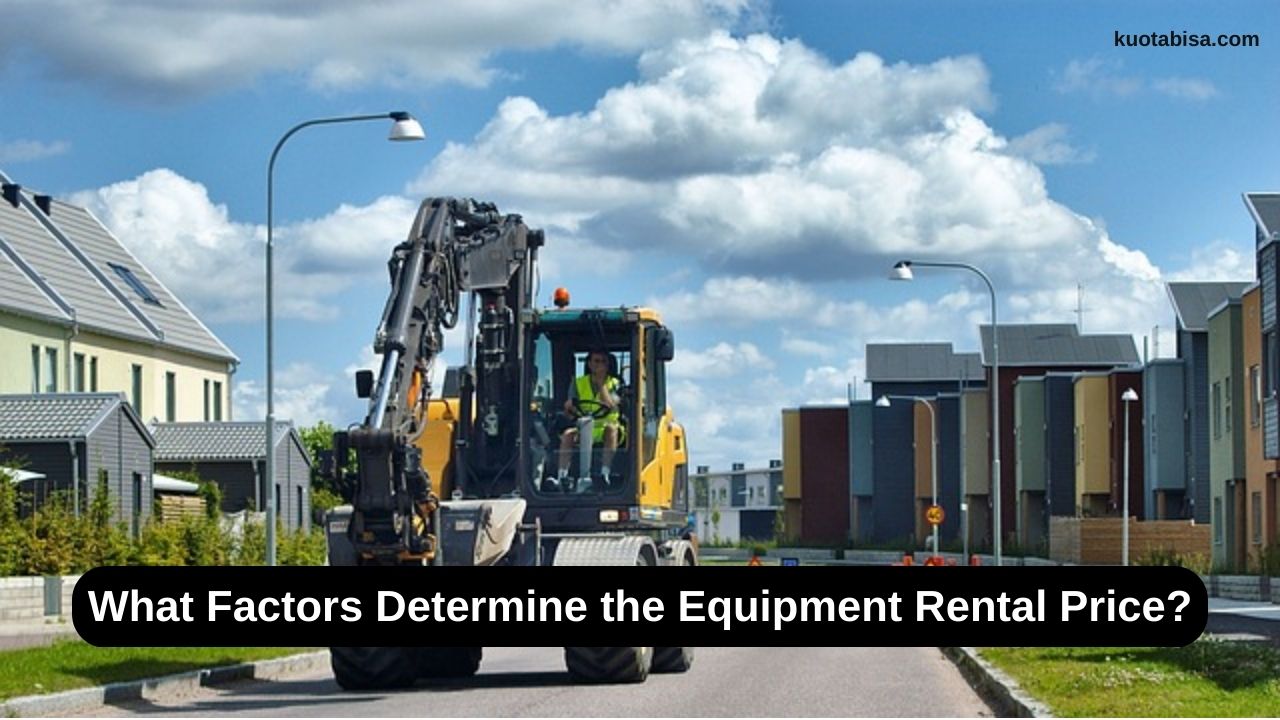
There are many factors that determine the cost of renting heavy equipment.
From the type and size of equipment required to the length of time required, equipment rental prices are based on your specific needs.
In addition to project needs, equipment rental prices across the country vary greatly depending on the local market and the competitive environment of the space.
Below are some of the key factors that affect heavy equipment rental costs.
1. Construction Equipment Type
When calculating rental costs, it is important to first clarify the type of equipment you need to rent.
Consider factors such as the size of the project and the nature of the project, here are some examples:
Equipment for Residential or Smaller Jobs
Skid steer loaders such as skid steer loaders, skid steer loaders and multi-terrain loaders are the most popular options for home landscaping projects due to their incredible versatility with compatible work tools.
Equipment for Large Job
For large-scale land management tasks, you can also consider larger machines such as backhoes, which offer excellent cost-effectiveness by offering two machines in one: wheel loader and backhoe.
Backhoe loaders are excellent on construction sites as they can be used in the early stages of lot clearance, leveling and backfilling to prepare for construction.
2. Construction Equipment Size
Once you’ve determined the right type of equipment for your project’s needs, the next factor in determining rental costs is the size of the equipment.
There are two big risks when choosing rental equipment: renting equipment that is too big or too small.
Both risks can negatively impact your budget.
Equipment that is too small for the task requires more operator time and drives up production costs.
Smaller devices are inefficient for larger jobs as they take longer to complete tasks such as grading, drilling and scrubbing.
Inefficient equipment can undermine productivity, increase the amount of time equipment is needed, and disrupt production schedules.
Conversely, if the equipment is too large, it can become inefficient.
The bigger the device, the harder it is to use.
Larger equipment also uses more fuel, increasing overhead costs.
Full-size equipment is not suitable for tight spaces and increases the risk of accidents and injuries.
You could visit the Cat Rental Store to select the right unit size for the most cost-effective solution.
3. Construction Equipment Technology
Another factor that can affect the price is the age of the rental equipment.
Modern heavy equipment is equipped with technology that increases productivity, reduces operating costs and increases safety.
A new machine fully loaded with the latest technology can have a higher initial cost than an older model, and this is reflected in the daily rental price.
4. Contract Length
A key factor in determining the cost of construction equipment rental is the length of time the rental is required.
Equipment rentals vary from a few hours to several months.
- Hourly rental agreements
- Daily rental agreements
- Weekly rental agreements, and
- Monthly rental agreements
5. Location
Heavy equipment rental costs also vary by location, as some markets are more expensive than others.
Each rental company sets prices based on their competitiveness in the local market.
6. Speciality Equipment
The final factor that affects heavy construction equipment rental prices is the wide availability of the necessary equipment.
If you need special equipment such as Power generation equipment, pump equipment, concrete equipment, etc., it may be difficult to obtain if you go to a small store.
If you choose a rental provider that has a wide range of inventory in many different locations, you’re much more likely to find the specialty equipment you need, when you need it, without paying higher prices.
Read More: 9 Heavy Machinery Operator Schools in 2024
Conclusion
Heavy equipment rentals are an affordable and convenient way to tackle more projects and maximize profitability. With low overheads and access to powerful equipment, rentals deliver maximum productivity from your investment.
For more information on heavy equipment rental costs, please contact your local dealer.
If you want more information about heavy equipment, CLICK HERE.
